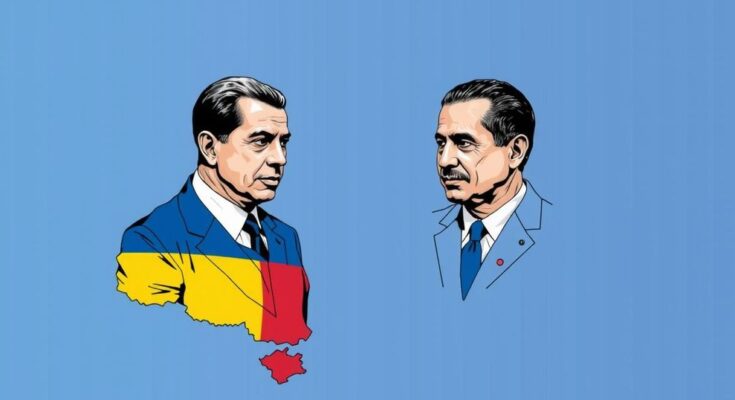The United States has imposed new sanctions on 21 additional allies of Venezuelan President Nicolás Maduro for their role in post-election repression. These sanctions come in the wake of a disputed election in July, where opposition candidate Edmundo González was recognized by the U.S. as the president-elect. The sanctions aim to hold accountable those involved in human rights abuses, although the impact remains indeterminate given the current political landscape in Venezuela.
The United States has expanded its sanctions against allies of Venezuelan President Nicolás Maduro, targeting an additional 21 officials accused of complicity in the government’s response to the disputed presidential election of July. The sanctions, imposed by the Department of the Treasury, include senior figures such as the head of the Venezuelan corrections agency, the director of an intelligence service, and a minister in Maduro’s Office. This action adds to the extensive list of restrictions already affecting numerous officials, including judges and ministers, linked to alleged human rights abuses in the nation.
In a significant political development, the Biden administration recently recognized Edmundo González, an opposition candidate, as Venezuela’s president-elect. González, who left for Spain following an arrest warrant related to vote tally publications, claims to have won the election by a substantial margin. Meanwhile, as Maduro continues to assert victory without providing concrete voting results, the U.S. has implemented additional visa restrictions on individuals implicated in repressing Venezuelans following the elections. The precise impact of these sanctions remains uncertain, as those previously sanctioned continue to maintain influential positions within the Venezuelan government. Furthermore, Venezuelan lawmakers are currently deliberating on a bill that categorizes economic sanctions as crimes against humanity, indicating potential legal repercussions for supporters of such measures.
This article highlights the ongoing tensions in Venezuela following a controversial presidential election characterized by allegations of human rights violations and electoral manipulation. The United States has taken a firm stance against the Maduro regime, imposing sanctions as a form of diplomatic pressure aimed at restoring democratic processes in the country. The recognition of opposition candidate Edmundo González by the Biden administration marks a significant shift in U.S. foreign policy towards Venezuela, emphasizing support for opposition figures amidst ongoing governmental repression.
In conclusion, the extension of U.S. sanctions against Maduro’s allies underscores the ongoing struggle for democratic governance in Venezuela. With rising international scrutiny and diplomatic recognition of opposition leadership, the Biden administration signals a commitment to addressing human rights issues and electoral fairness in the region. However, the prevailing power dynamics within Venezuela raise questions about the effectiveness of these sanctions in catalyzing meaningful change.
Original Source: www.wlrn.org




